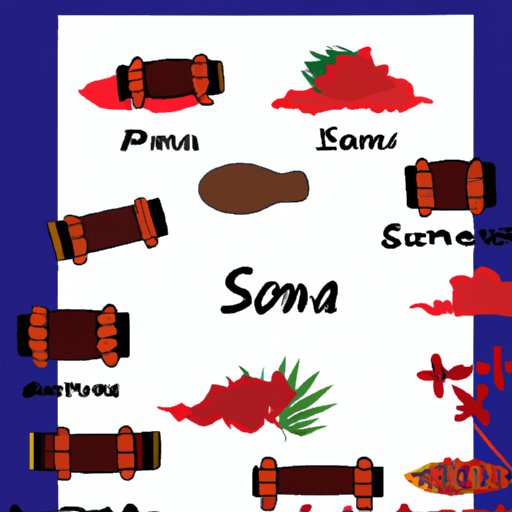Introduction
Samoan culture is one of the oldest cultures in the Pacific, dating back thousands of years. It is a unique blend of ancient Polynesian and modern influences that have shaped Samoa’s unique identity. This article will explore the history and traditions of Samoa, as well as its spiritual beliefs, family structure, art, music, cuisine, language, customs, governance and social structures.

Exploring the History and Traditions of Samoa
The earliest inhabitants of Samoa were believed to have arrived from Southeast Asia around 3,500 years ago. These settlers brought with them their own cultural traditions, which over time blended with other Polynesian cultures to create the distinct Samoan culture that exists today. Throughout its history, Samoa has been influenced by numerous political and religious events, including the arrival of Christianity in the 19th century and the occupation of the islands by New Zealand forces in the early 20th century.
Traditional Samoan culture is based on a strong sense of respect for elders and ancestors. This is reflected in the elaborate ceremonies and rituals that are performed to honor the dead and to mark important life events such as weddings and funerals. Respect for elders is also demonstrated through the practice of fa’a Samoa, or the “Samoan Way”, which emphasizes the importance of family, community and tradition.
Understanding Samoan Spiritual Beliefs
Samoan spiritual beliefs are based on the worship of gods and goddesses known as atua. These deities are believed to be responsible for all aspects of life, from the weather to health and prosperity. It is believed that these gods must be appeased through offerings and prayers, and that failure to do so can result in misfortune or illness.
Rituals and ceremonies play an important role in Samoan spiritual beliefs. These rituals often involve singing, dancing, chanting and offerings of food, flowers and money. They are used to honor ancestors and gods, as well as to mark important life events such as births, deaths and marriages.
Examining the Role of Family in Samoan Society
Family is at the center of Samoan society. Families are organized into extended family units, or aiga, which are made up of several generations of related individuals. The aiga is led by a matai, or chief, who is responsible for making decisions that affect the entire family. Each family member has a specific role and responsibility within the aiga, and all members are expected to work together for the benefit of the group.
Family relationships are highly valued in Samoan culture. Respect for elders is paramount, and children are taught to show respect to their parents and grandparents. Strong family ties are also essential for economic survival, as families rely on each other for support in times of need.
Exploring Samoan Art and Music
Samoan art and music are deeply rooted in tradition. Traditional art forms include wood carving, weaving and tattooing. Music is an integral part of Samoan culture, and is played using traditional instruments such as drums, ukuleles and guitars. Popular songs and dances are performed during celebrations and ceremonies, and are often accompanied by vibrant costumes and choreographed movements.
Investigating Samoan Cuisine
Samoan cuisine is characterized by the use of fresh ingredients and the heavy use of coconut in cooking. Common ingredients include taro, yams, bananas, fish, pork and chicken. Popular dishes include palusami (baked taro leaves stuffed with coconut and onion), oka (raw fish salad) and fa’alifu (coconut cream custard).

Learning about Samoan Language and Customs
The Samoan language is closely related to other Polynesian languages such as Hawaiian and Maori. Popular sayings and proverbs are used to express wisdom and convey moral values. Common customs and practices include the exchange of gifts, the sharing of food and the observance of taboos.

Examining Samoan Governance and Social Structures
Samoan governance is based on a hierarchical system of chiefs and orators. Chiefs are responsible for maintaining law and order, while orators act as advisors and mediators. Villages play an important role in Samoan society, as they provide a place for families to live and work together. Village meetings are held to discuss important issues and resolve disputes.
Conclusion
Samoan culture is an ancient and complex blend of traditions and beliefs that have evolved over thousands of years. This article has explored the history and traditions of Samoa, as well as its spiritual beliefs, family structure, art, music, cuisine, language, customs, governance and social structures. It is clear that Samoan culture has had a profound influence on the people of Samoa, and continues to shape their lives today.
Further study into Samoan culture is recommended, as there is still much to learn about this fascinating culture. Such research could help to preserve and promote the unique heritage of Samoa and ensure that it is passed down to future generations.
(Note: Is this article not meeting your expectations? Do you have knowledge or insights to share? Unlock new opportunities and expand your reach by joining our authors team. Click Registration to join us and share your expertise with our readers.)
